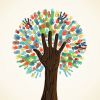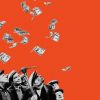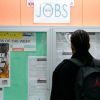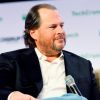-
 +5 +1
+5 +1The Corporations Devouring American Colleges
The price of college is breaking America. At a moment when Hollywood celebrities and private equity titans have allegedly been spending hundreds of thousands in bribes to get their children into elite schools, it seems quaint to recall that higher learning is supposed to be an engine of social mobility. Today, the country’s best colleges are an overpriced gated community whose benefits accrue mostly to the wealthy.
-
 +23 +1
+23 +1The two hidden intellectual moves behind the "progressive" argument against free college
the ideas that public goods need to be subjected to cost-benefit analysis, and the idea that education's primary benefit is higher earning potential.
-
 +10 +1
+10 +1A Guardian of Global Capitalism Warns Capitalism Has A Problem
It's springtime again in Washington, D.C., when flowers bloom, birds chirp, and thousands of wonks from all over the world descend on the Spring Meetings of the International Monetary Fund and World Bank, Planet Money included. Since World War II, the IMF and World Bank have served as guardians of global capitalism. The IMF, in particular, has a long history of bailing out countries in financial crises and using its power to push a free-market agenda. That's why we were surprised to hear IMF officials suggest capitalism is running amok.
-
 +19 +1
+19 +1A Mars Colony Could Be Humanity's First Shot at a Ground-Up, Pure Economy
A city on Mars could provide the first-ever truly blank slate to organize a new kind of economy. While attempts to re-organize the means of production are as old as humankind itself, these experiments have always been limited to some extent by the economic systems that came before. People can only change so much so fast. Space exploration, and the establishment of new colonies, may be humanity’s first shot at creating an economy from the ground up.
-
 +11 +1
+11 +1Capitalism in crisis: U.S. billionaires worry about the survival of the system that made them rich
For the first time in decades, U.S. politicians and billionaires ask whether American-style capitalism can survive.
-
 +1 +1
+1 +1A Yield Curve Primer - The Real Reason Why An Inverted Curve Matters
If an inverted yield curve does not worry you, it should. It's a leading indicator of a pending recession. But that's okay if you are prepared for it.
-
 +20 +1
+20 +1Quarter of Americans are 'worse' now than before Great Recession: survey
Roughly 25% of people that were adults during the Great Recession a decade ago are "worse now" than they were before, despite the economy making great strides.
-
 +19 +1
+19 +1The mindfulness conspiracy
The long read: It is sold as a force that can help us cope with the ravages of capitalism, but with its inward focus, mindful meditation may be the enemy of activism
-
 +32 +1
+32 +1Americans Need More Neighbors
A big idea in Minneapolis points the way for other cities desperately in need of housing.
-
 +20 +1
+20 +1The [U.S.] One Percent Have Gotten $21 Trillion Richer Since 1989
The bottom 50% have gotten poorer. By Eric Levitz.
-
 +15 +1
+15 +1Samuel Delany on Capitalism, Racism, and Science Fiction
Samuel Delany was 20 when his first novel, The Jewels of Aptor, appeared. That was in 1962, and by 1967–69 (when “Time Considered as a Helix of Semi-Precious Stones” and “Aye, and Gomorrah …” nabbed Hugo and Nebula awards), he was a luminary of American science fiction and fantasy.
-
 +5 +1
+5 +1American Capitalism Is Brutal. You Can Trace That to the Plantation.
Slavery helped turn America into a financial colossus. And our economy is still shaped by management practices invented by enslavers and overseers.
-
 +26 +1
+26 +1The Trucking Industry Is In a Recession. Here’s What It Means for the Economy.
The trucking industry is already in a recession. The question for investors is, however, does freight industry weakness presage a full-blown economic downturn?
-
 +36 +1
+36 +1The end of capitalism has begun
Without us noticing, we are entering the postcapitalist era. At the heart of further change to come is information technology, new ways of working and the sharing economy. The old ways will take a long while to disappear, but it’s time to be utopian
-
 +6 +1
+6 +1The Rich Can’t Get Richer Forever, Can They?
Inequality comes in waves. The question is when this one will break.
-
 +24 +1
+24 +1Thomas Piketty's new book uses data to trace how inequality changes ideology
In the same way that Capital in the Twenty-First Century transformed the way economists look at inequality, Piketty’s new book Capital and Ideology will transform the way political scientists look at their own field.
-
 +3 +1
+3 +1US income inequality jumps to highest level ever recorded
Income inequality last year reached its highest level in more than half a century, as a record-long economic expansion continued to disproportionately benefit some of the wealthiest Americans. A key measure of wealth distribution jumped to 0.485 in 2018, the Census Bureau said Thursday, its highest reading since the so-called Gini index was started in 1967. The gauge, which uses a scale of 0 to 1, stood at 0.482 a year earlier.
-
 +17 +1
+17 +1Marc Benioff says capitalism, as we know it, is dead
Marc Benioff says "capitalism, as we know it, is dead," and it is time for a new form of capitalism that focuses more on societal good. "That new kind of capitalism that is going to emerge is not the Milton Friedman capitalism, that's just about making money," the billionaire co-CEO of Salesforce and owner of Time Magazine, said at the TechCrunch Disrupt conference in San Francisco Thursday evening.
-
 +11 +1
+11 +1Salesforce's Marc Benioff calls for a 'new capitalism' where billionaires pay higher taxes
Salesforce co-CEO Marc Benioff is calling for the establishment of a “new capitalism” that’s paid for in part by taxing billionaires like himself. In an op-ed in The New York Times published Monday, Benioff said businesses should focus less on profits and more on their impact on society, while using their power to help advance important causes, like the creation of a national privacy law and fighting climate change.
-
 +4 +1
+4 +1Obama: I know I hurt the feelings of 'fat cat' bankers
It looks like President Obama and Wall Street bankers will just have to agree to disagree on their status as "fat cats." Early in his presidency, Obama famously described bankers who received bonuses during the financial crisis as "fat cats," a diss that set off years of tit-for-tat recriminations and undermined his relationship with financial titans.
Submit a link
Start a discussion




















